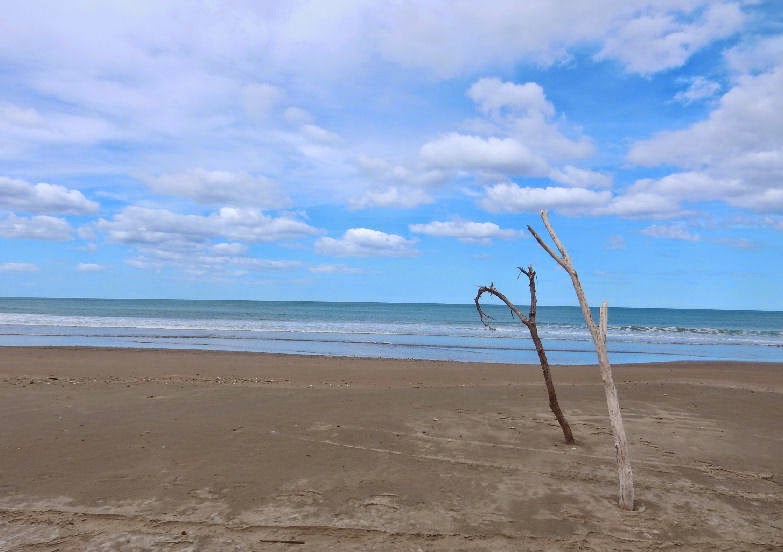My journey today continues northwards to Akitio via the
small rural community of Pongaroa formed in 1895.
The town initially supported a timber mill
but later, once the bush was cleared, the land became sheep and beef cattle
country. Pongaroa was the birth place of
Maurice Hugh Frederick Wilkins (1916-2004) who won a Nobel Prize in 1962 for
his contribution to the discovery of the structure of DNA. (http://www.nzhistory.net.nz/keyword/pongaroa) At one time it was thought that the Masterton-Napier Railway
would run through the town, however, eventually it was decided that the line
should run through Pahiatua, west of Pongaroa.
In the centre of the community stands the Pongaroa Hotel,
formerly the BNZ Bank building built in 1911.
Pop inside and sample country hospitality at its best.
And – in the Ladies – read about “What
not to say to your boyfriend”
A little further along the street
The Pongaroa Post & Telegraph building can be seen forlorn and disintegrating. Back in December 1922 it was reported that
the Pongaroa Post Office, including the telephone bureau, had been destroyed by
fire. The fire started next door in
Gamby’s butchery shop and that was destroyed along with Kerr’s bakery. The Bank of New Zealand building had a very
narrow escape. There was a heavy gale blowing
at the time but a bucket brigade was formed and this helped to save the day. The postmaster, Mr. R.E. Williams who was
living on the premises with his family lost most of his possessions and over
130 telephone subscribers were disconnected for some hours.
Other buildings in the main road
are decorated with colourful murals
and yes, there is a public convenience!
"Pongaroa the way to
go"
Akitio is a one hour’s drive from Pongaroa - much of it along
the banks of the Waione River. A
traveller arriving in 1936 describes the scene:
Seen in the failing light the scene was one of desolate grandeur. Red clouds were massed above the hill and
brooded over the sea; a cold wind was combing the land. To the norward, at the bottom of the descent,
lay the cottages of Akitio straggled along the beach. The township – if you could call it such, for
it does not boast a single store – stretched from the wool sheds and the
landing stage on the point below the road to the pine-planted hill. ……………… The high white shape of Cape
Turnagain completely dominated the landscape.
 |
| Akitio with Cape Turnagain in the distance |
As we drove down the hill we though we had never seen a beach so
thickly strewn with driftwood. All the
flotsam of the Pacific, bleached white as bones, seemed to have drifted to rest
here. Huge, fat, sullen logs were piled
like crates of furniture along the sides of the road.
Surprisingly, some 78 years
later, this is practically the same scene which I saw as we approached the coast.
Akitio is beautiful but it is a mournful beauty. The place broods as it were upon “old
forgotten far-off things” and wears an air of essential tragedy. Such sombre and melancholy beauty is not to
everyone’s taste but if you do like it the place exercises a strange
fascination over you and you will want to return, and when you are there will
be content to do nothing except be there.
I was certainly more than content
with just being there. All I did was to
record the scene with my camera. I wanted
to remember this.
If you ever have the good fortune to see this “mournful
beauty” for yourself then rest assured that Rest Rooms are available. They are in front of the Fire Station, right
on the edge of the beach and are decorated in a tasteful, minimalist marine style.
Inside you will find more marine motifs - together
with ample room to change.
Our traveller goes on to tell us:
Wool bales from as far inland as Branscombe were piled up in the sheds
at the Akitio Landing and on New Year’s Day everything was ready and everyone
in a state of expectation, awaiting the steamer that was to round Cape Turnagain
to take the bales to England. The wool is loaded from the bullock teams –
which go up to their necks in the surf – to surfboats and from them to the
little steamer.
These days all that is left of that landing stage is two
posts jutting up from the sea.

















No comments:
Post a Comment